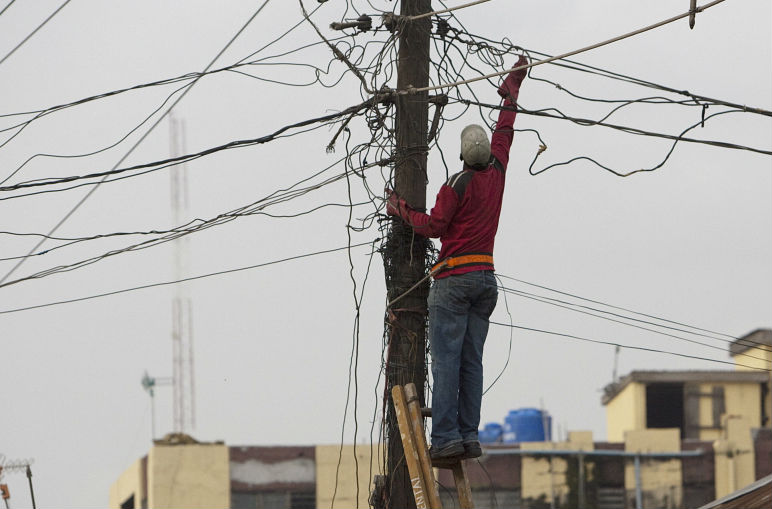By: Anita Makri
Send to a friend
The details you provide on this page will not be used to send unsolicited email, and will not be sold to a 3rd party. See privacy policy.
Money is power, the saying goes. Sure enough, the fraction of GDP invested into science and technology (S&T) is a telling sign of how much a country values its biotech sector.
Lucy Ogbadu knows this full well. As head of Nigeria’s National Biotechnology Development Agency, she has her eye on the myriad of needs that kind of money can meet, from facilities to PhD training.
But just after her keynote speech this week at the Africa Diaspora Biotech Summit in the UK, lamenting African countries' poor rankings on the global S&T investment table – all but one invest less than 1 per cent of GDP – the audience’s attention seemed to be captured by a question about another kind of power.
Speaking from the floor, medical doctor Yemisi Bokinni asked how anyone can do serious genomics research in Nigeria without a steady electricity supply. You need to guarantee the low temperatures it takes to do that work, she said, or work in any sector.
Talking about energy at the summit this week focused the conversation on a tangible problem to solve. At the same time it touched on bigger themes around how to power Africa’s biotech sector.
Anita Makri, SciDev.Net
The question seemed to cut through the somewhat paralytic effect of pondering high-level policy, with the slow pace of change it usually entails. And the conversations that followed return to it more than once, at one point earning Bokinni the label ‘electricity lady’ to everyone’s amusement.
Energy hardly ever takes centre stage in debates about how to boost S&T capacity in Africa, and in developing countries more broadly. It may well deserve a seat higher up the table.
Talking about energy at the summit this week focused the conversation on a tangible problem to solve. At the same time it touched on bigger themes around how to power Africa’s biotech sector.
One came from Bokinni herself, who said the question of how to guarantee a reliable electricity supply shows the role that other sectors can play for biotech research – so S&T ministries need to seriously engage across departments, including energy. It's about getting the basic things right, and creating an enabling environment so researchers can focus on testing and developing ideas, she told me.
But what can individuals or institutions do in the meantime? Organised action and an active search for alternatives was a second theme that emerged. Optimists in the audience insisted that solutions can be found. Institutions often use their own generators, for example – a short-term measure, even if they run on diesel. Or one can look at solar technology that can concentrate the sun’s rays to generate electricity through heat.
Impossibility is a state of mind, we heard. The key is to engage the government but also find like-minded people, get together with them and find a way around the problem. How the telecommunications sector was transformed in just a few years is an example to follow.As the day drew to a close, a few remarks by University of Oxford professor Kevin Marsh captured the dual energy of optimism and realism that reverberated through the day. We need to balance these forces against each other, he said. Solutions are possible, and several African countries are making serious policy moves towards a knowledge economy. But the paltry levels of national investment that Obgadu highlighted as she kicked off the day offer a dose of realism that cannot be ignored.
The summit, which took place at the University of Cambridge, was organised by the US-based non-profit JR Biotek Foundation.














